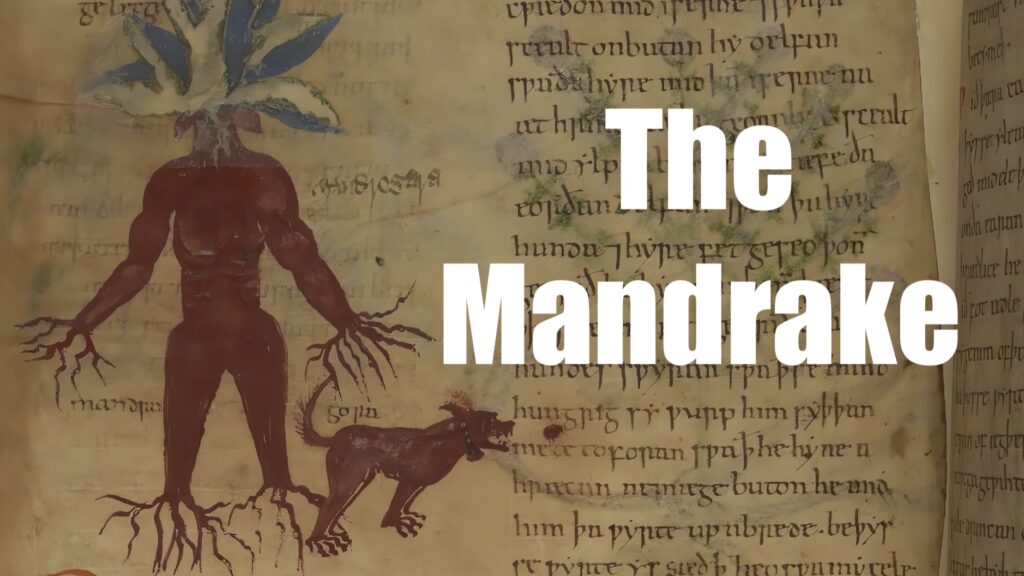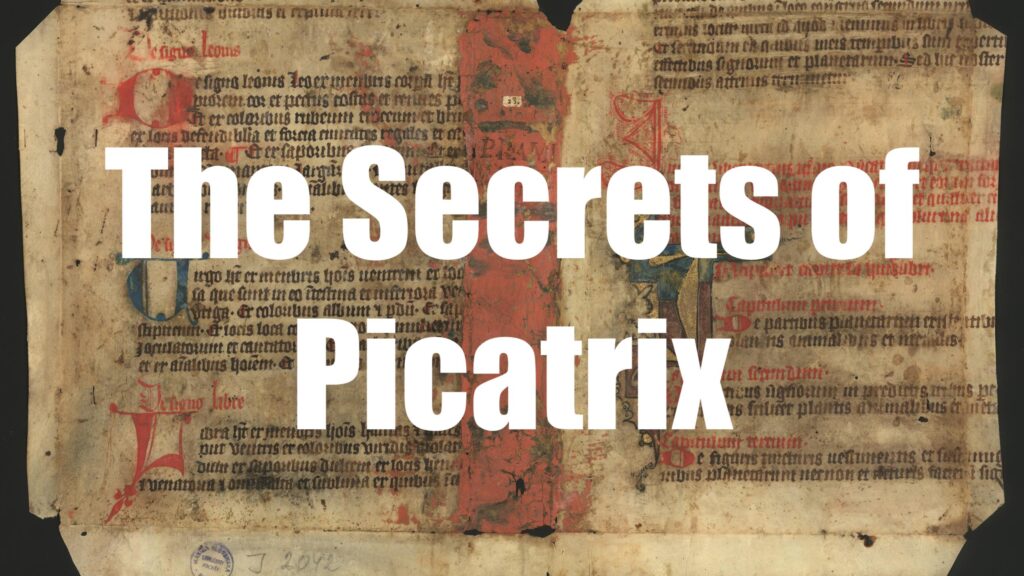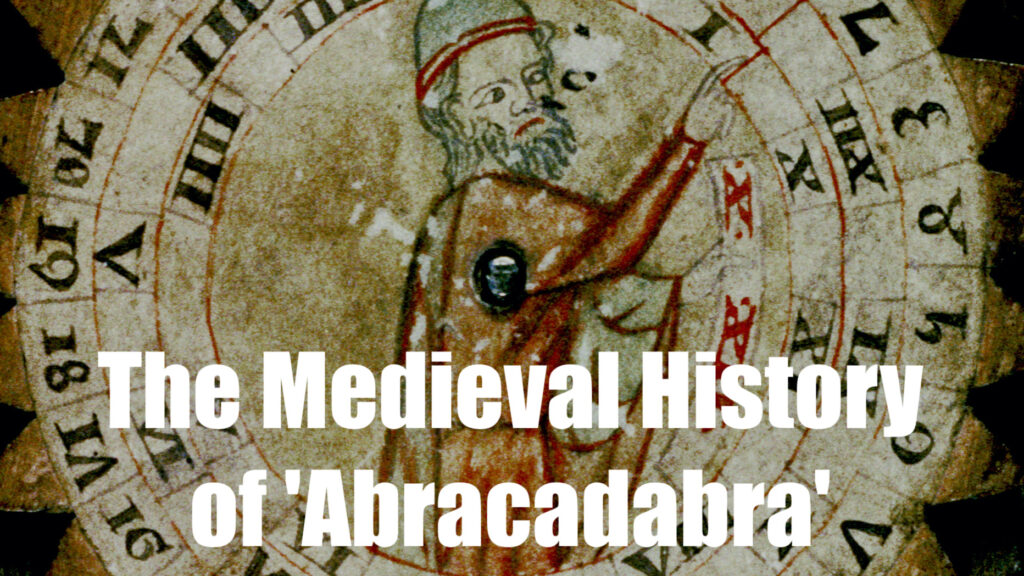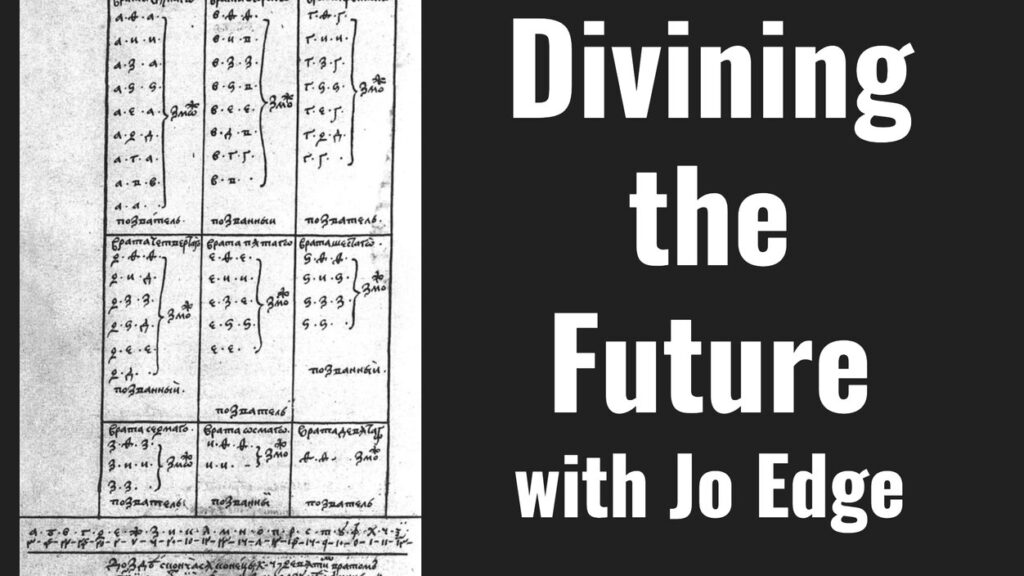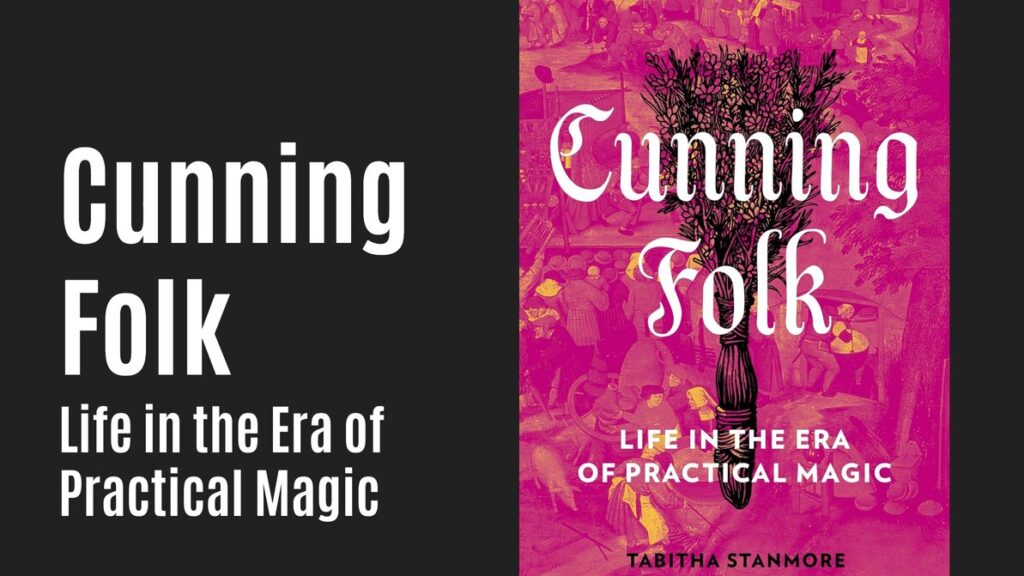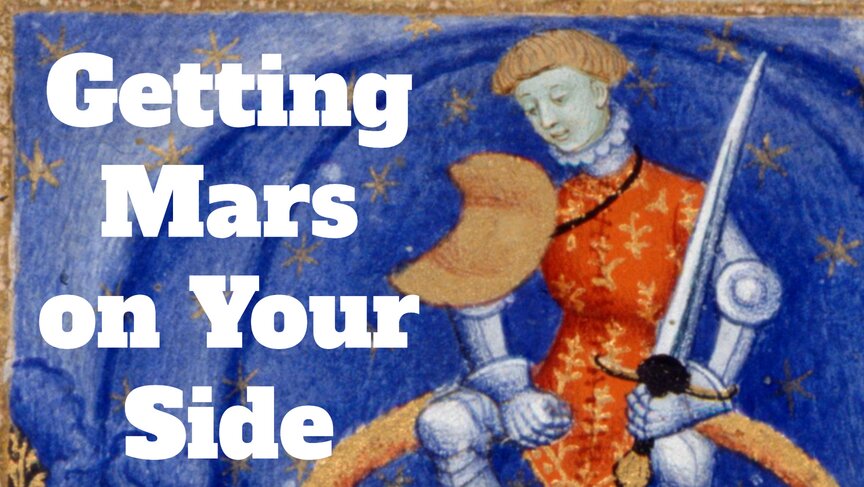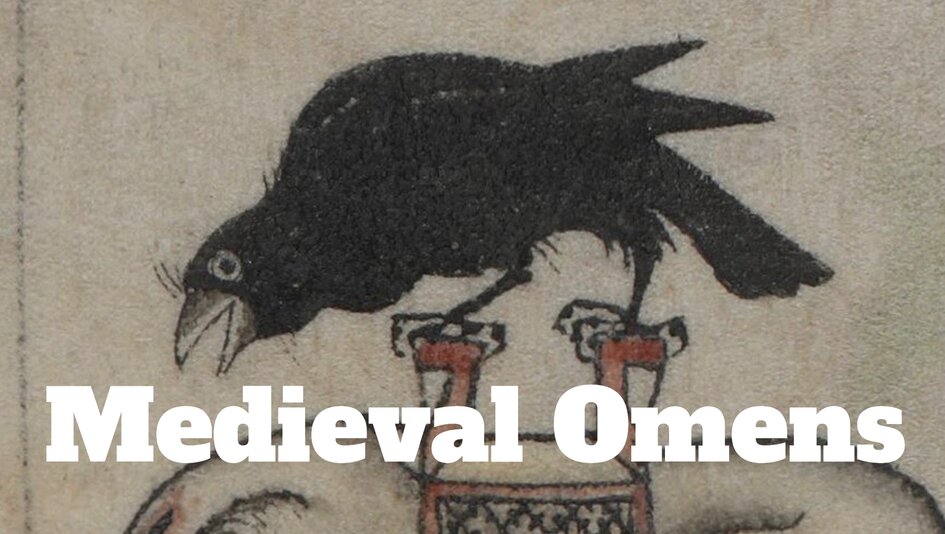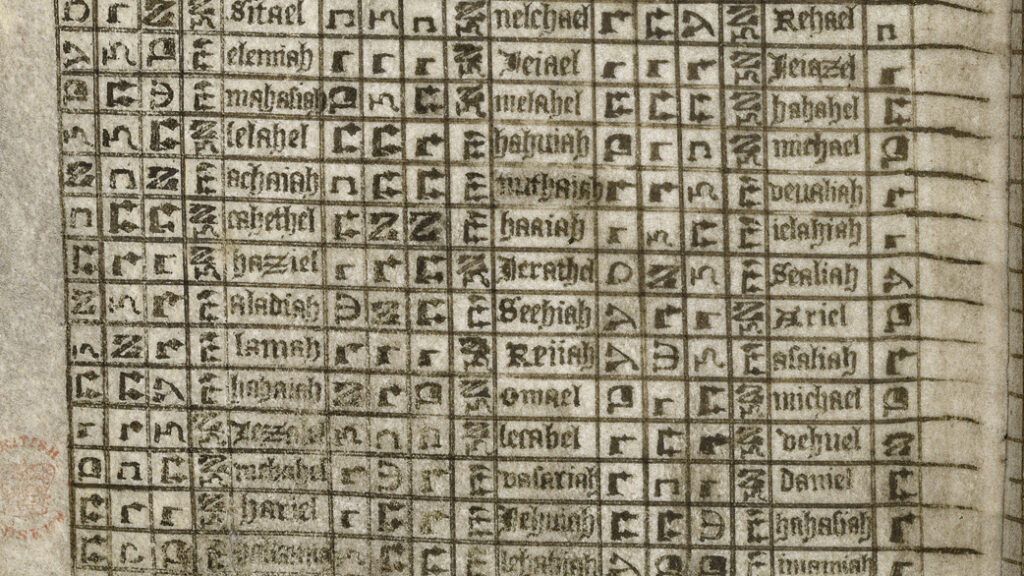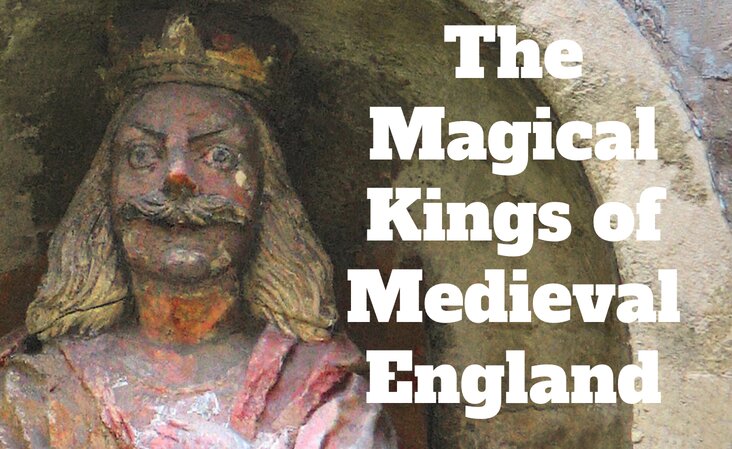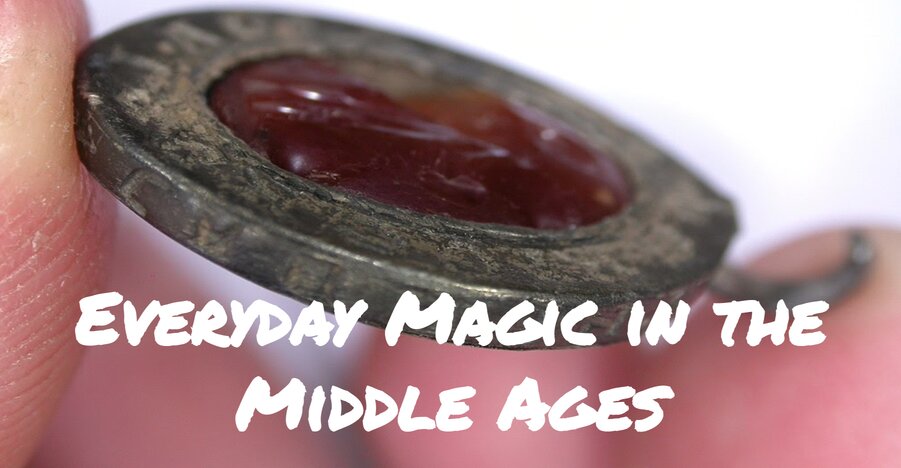New Medieval Books: The Magic Books
Medieval people were interested in accessing secret knowledge like magic, divination and astrology. This book examines over 20 works from the period that deals with these topics, revealing what they say (and what they show) about these topics.
How to Harvest a Mandrake: Medieval Medicine and Magic in the Old English Herbarium
Discover the medieval cure-all known as the mandrake—and why you needed a hungry dog to pull it from the ground, according to a 10th-century medical text.
How to Become an Evil Wizard in the Middle Ages: The Secrets of Picatrix
Discover the dark spells, strange rituals, and magical powers found in Picatrix, a medieval guidebook for aspiring wizards—featuring shapeshifting, poison recipes, and spirit summoning.
New Medieval Books: The Galdrabók
The Galdrabók: Forbidden Icelandic Folk Magic Translated by Kári Pálsson Hyldyr ISBN: 978-1-966041-03-0 Editions and translations of two pre-modern Icelandic manuscripts related to…
Magic in Medieval Manuscripts: A Beginner’s Guide
Far from being hidden and marginalised, magical texts abound in medieval manuscripts, many embellished with beautiful illustrations and sparkling with gold.
How ‘Abracadabra’ Became a Magical Word in the Medieval World
Discover how the word “Abracadabra” evolved from ancient roots into a powerful magical term in the medieval world—used in healing, heresy, and hidden charms.
17 Forbidden Medieval Superstitions and Practices
Discover the strange and forbidden practices that medieval Church authorities fought to banish—but never fully eradicated.
Medieval Magic to Catch Thieves
Imagine being accused of theft in 15th-century Denmark and forced to eat a piece of enchanted cheese to prove your innocence. Would you succeed—or would the bitter taste betray you? Such peculiar rituals weren’t uncommon in the Middle Ages, where magic intertwined with daily life, offering unusual solutions to everyday problems like theft.
New Medieval Books: Defining Nature’s Limits
Focusing on the 16th century, this book looks at how the Catholic Church tried to enforce their religious thinking when it came to science and magic in the late Middle Ages and early modern period.
Divining the Future with Jo Edge
Not knowing the future is an intensely uncomfortable experience, which is why humans invented a clever system to predict the future through numbers, called onomancy. This week on The Medieval Podcast, Danièle speaks with Jo Edge about how onomancy works, who used it, and how it fit in with medieval theology.
New Medieval Books: Cunning Folk
A look at everyday magic in England between the 14th and 17th centuries. It reveals how people from different backgrounds believed that magic could help them with various tasks, whether it be finding buried treasure or predicting the future.
New Medieval Books: Onomantic Divination in Late Medieval Britain
Onomancy is a type of divination to learn a person’s future based on their name. This book looks at how this magic became popular in the later Middle Ages.
Medieval Charms with Katherine Storm Hindley
Like many people today, medieval people used charms, personal talismans, and amulets to help smooth their way through life. But just who used them? How did they use them? And what did the church think about such things? This week on The Medieval Podcast, Danièle speaks with Katherine Storm Hindley about charms in the Middle Ages.
New Medieval Books: ‘Charms’, Liturgies, and Secret Rites in Early Medieval England
Examining how charms – a set of instructions that allows someone to use ‘magic’ – were connected to Christianity in early medieval England.
New Medieval Books: Art of the Grimoire
A global history of magic, from ancient to modern. The focus of this book is often on the materials used to record magic, including scrolls, manuscripts and printed books.
13 Magic Tricks from the Middle Ages
The Middle Ages are thought to be an age of wizards and magic. While stories about Merlin might just be literature, medieval people did know magic tricks – many of which are very similar to modern ones.
The Ancient Origins of Christmas Magic
From magi to holly – a look at the magical aspects of Christmas celebrations.
Potions and Poisons: ‘Magical’ Drinks in Medieval Norse Literature
Perceiving the ordinary or the magical as discrete separate categories is a modern way of thinking that could impede our understanding of the past.
Getting Mars on Your Side: Using Medieval Astral Magic to Win Wars
For many in the Middle Ages, the planets of the solar system held special powers, and could even bring victory in warfare. The key to this power was told in the Picatrix.
Medieval Omens
Omens were a staple of medieval superstition and a great reflection of medieval folk beliefs.
Entangled Magic in the Medieval Latin West
Why were medieval magic texts debated by intellectuals and collected by monks, and what new, rich and surprising views of the cosmos did they express?
The Magical Kings of Medieval England
While magic and historical figures seem like polar opposites to many today, in the Middle Ages, they were frequently connected. Medieval historical records even contain several accounts of former kings who used magic in their reigns: one king magically constructed hot baths, while the other used magic to build a bridge over the English Channel.
Everyday Magic in the Middle Ages
In the Middle Ages magic was an accepted and common part of many people’s lives.
From Magic to Maleficium: The Crafting of Witchery in Late Medieval Text
In 1437, theologian Johannes Nider warned about a new threat to the Christian world – witches.
How to Make a King Fall in Love
Remember that it’s treason to mess with a king’s head or heart, so read on at your own risk.

